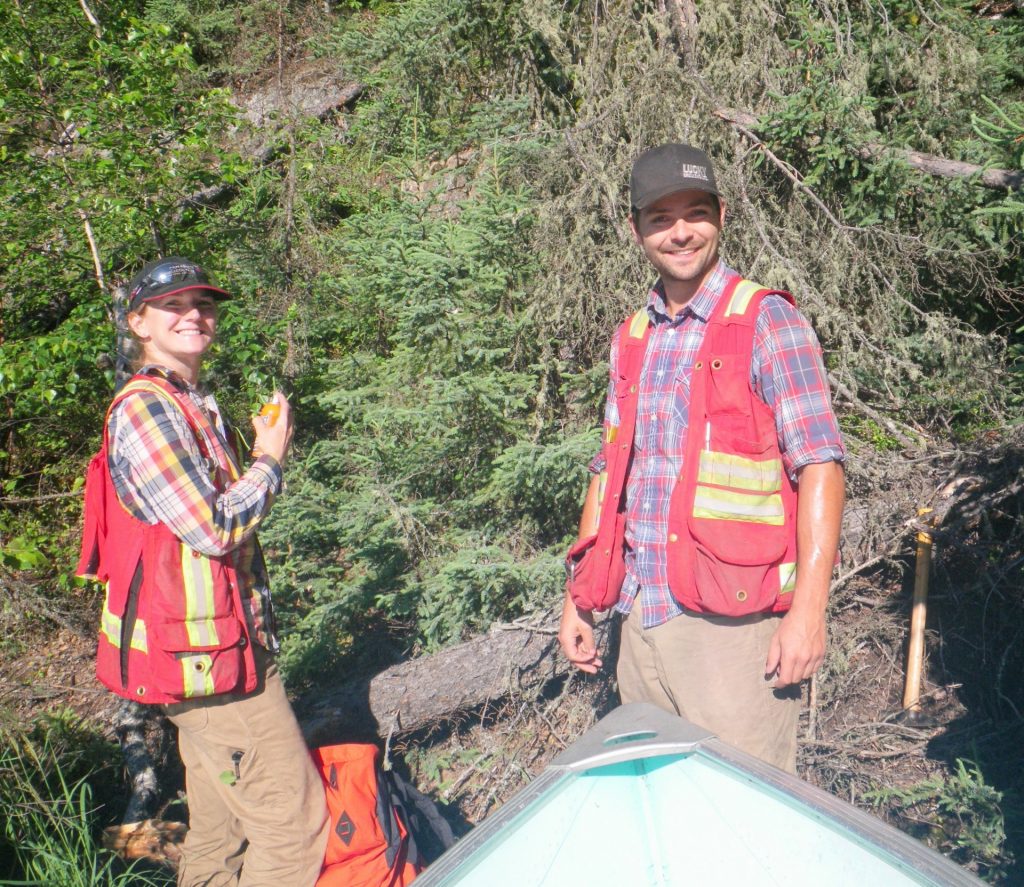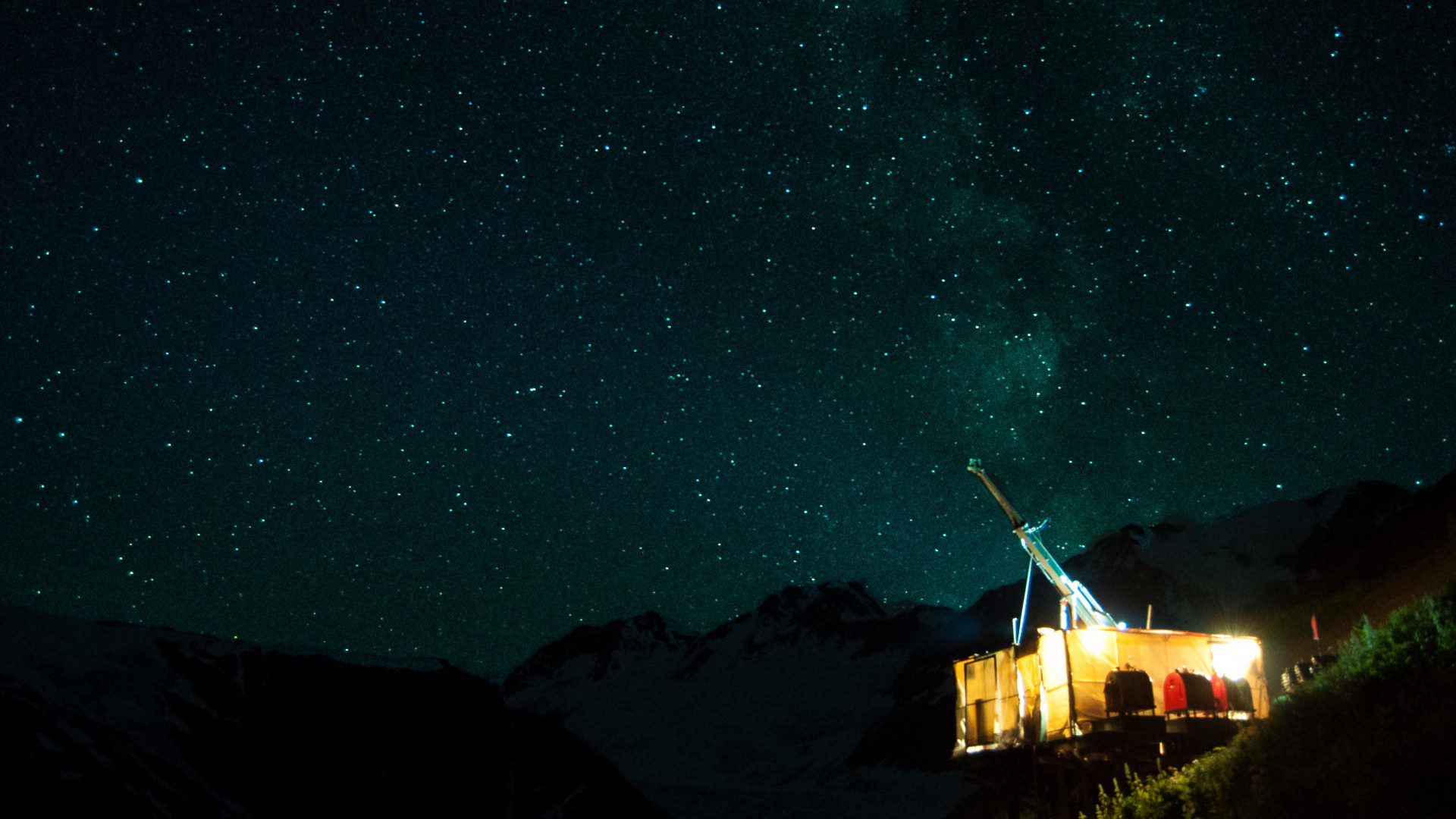Modern-day prospectors Krisztina Pandur and Connor Malek captured the imaginations of the audience at the April 2019 AME MinEx Talks discussing the potential rewards and importance of old-fashioned prospecting in today’s modern mineral exploration and mining industry.
Brought together by a mutual love of geology and greenfield exploration work, the pair formed First Geolas Consulting in 2017, where they specialize in geology-driven prospecting and greenfield exploration projects. Much of their work is client-based but Pandur and Malek are also active in developing their own claims.
In their talk Pandur quoted famed prospector and former PDAC president Viola MacMillan, describing prospectors as “people who are optimists by nature. Although they never stop hoping that they will strike it rich one day ultimately they just enjoy being their own masters. They go where they want when they want, there’s no time clocks to punch, there’s no one looking over their shoulders and they have the satisfaction that comes from knowing that whatever they achieve has come from their own efforts.”
This rings true for both Pandur and Malek as the allure of prospecting goes far beyond the potential financial gains. “When you put all the money and effort into your own property and you go out there and you actually find something that’s an indescribable feeling,” Pandur says. “It’s just seeing your hard work pay off really,” Malek adds, “even if you’re not entirely successful in finding a bonafide mine, the fact that you get samples that look interesting and they come back with some anomalous values is enough to make it worth it.”
Boots on the ground leads to new discoveries
Rarely seen as glamourous, the rough and tumble world of prospecting has an important role in the modern-day mining industry. Exploration expenditures in Canada increased over $3B between 2005 and 2011 whereas the number of new discoveries, especially major discoveries, remained relatively stagnant. Experts agree that increasing the number of new discoveries will require more boots on the ground and more investment in greenfield exploration.
In recent decades prospecting has fallen out of favour, with fewer people choosing to lace up their boots and head into the bush. “The general idea amongst everyone is that all the low-hanging fruit has been picked,” Malek says, “Potentially that could be why there is a lack of prospectors is that everybody assumes you need to drill a 500-metre deep hole to find anything anymore.”
Prospectors can bridge the gaps in exploration during lean times created by the cyclical nature of the mining industry. “The last seven years have been pretty quiet. There’s been a lot of ground come open and a lot of stuff is just sitting there wide open,” Malek says “If there were more prospectors around they could jump on that and develop them a little bit more and start filtering out which are the better properties in time for the next boom of capital that would come in and fund some more exploration on those sometimes isolated showings, sometimes just forgotten showings.”
Efficiencies of scale also give low-cost, early-stage exploration an edge. “I think prospectors have the advantage of that efficiency of being able to go out there and spend their own time, maybe collect a few rocks, send some samples into the lab and that’s the cost,” says Malek, “It’s pretty nickel and dime to get out to site.” Being able to work a property on their own timeline and budget also allows prospectors to think creatively and come up with new ideas. “They might have different ideas than everybody else has had before,” Malek says, “And from that they’re able to vector into the right location and find something interesting.”
Tomorrow’s prospectors
Encouraging the next generation of prospectors is key to increasing the number of boots on the ground in exploration. “Even just talking to younger people about this option, it’s a good way to go about this because leaving school you don’t really know that you could be doing geology on your own too,” says Pandur, “Most people just finish school and expect to get a good job.”
But it’s not just geologists we should be encouraging to get into prospecting. “That’s the thing about prospecting is it’s not only geologists that can do it, it’s any regular person,” Malek says, “There’s a lot of people in BC that would go out to the bush to go quadding, fishing or hunting anyways. They just enjoy being out in the wilderness. It would be interesting to encourage them to try prospecting.”
Their advice for aspiring prospectors? Just keep going and don’t overdo it. “It’s a persistence thing I think,” says Malek, “you do have to sometimes fold the cards you’re dealt in a way. You have to assess what your property looks like, but if something looks good and you really do believe in it, then keep pursuing it.” Pandur adds, “There will be some discouraging moments but it’s worth not giving up on it.”

Krisztina and Connor were just one of nine inspirational presenters at AME’s pilot event last year. Interested in sharing your industry story and passion? Apply for a spot at this year’s event here.
Save the date for the return of AME MinEx Talks 2020, taking place at UBC Robson Square on April 16, 2020.
